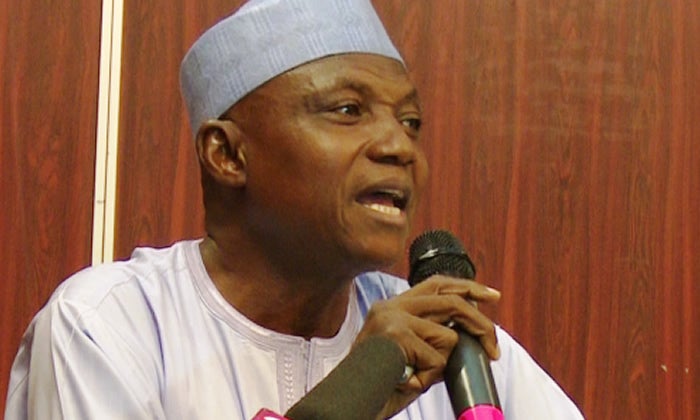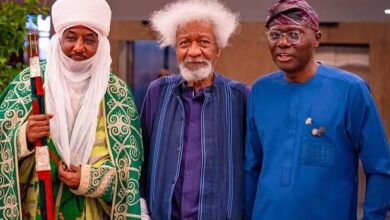Likud leader Benjamin Netanyahu was formally given the president’s mandate to form Israel’s 37th government on Sunday, less than two weeks after his right-religious allies won a majority 64-MK bloc in the 120-seat Knesset at the polls to enable them to retake power after 19 months in the opposition.
Upon receiving the mandate to form what will be the sixth government under his leadership, Netanyahu said “the people made a clear decision in favor of forming a government headed by me,” and vowed to form “a stable and successful government, a responsible and dedicated government” that would serve “all of Israel’s residents, without exception.” He hailed “the democratic process that we are rightly proud of, [in] the sovereign, democratic State of Israel.”
“I intend to be a prime minister for everyone – for those who voted for me, and for those who did not vote for me. It reflects what I believe in and what guides my actions,” he added, echoing a statement he made shortly after initial results from the November 1 election indicated his win.
Continuing with his conciliatory post-election tone, Netanyahu said he plans to “work together to increase the areas of agreement” inside Israel.
“There is wide agreement that Israel is the nation-state of the Jewish people,” he said, but also agreement on the imperative “to preserve the individual rights of every citizen.”
Drawing his majority in the 120-seat Knesset exclusively from parties loyal to Likud, Netanyahu’s triumph also hails a likely end to the current chapter of political instability that embroiled Israel in five national elections since 2019 and contributed to increasing polarization.
Sunday is the eighth time that Netanyahu, Israel’s longest-serving prime minister, has received the legally required mandate from an Israeli president in order to attempt to form a government. He has succeeded five times and failed three.
Before bestowing the mandate upon the Likud leader, President Isaac Herzog noted that he was aware of the Likud leader’s ongoing criminal trial for alleged corruption.
“I am not oblivious, of course, to the fact that there are ongoing legal proceedings against MK Netanyahu at the Jerusalem District Court, and I do not trivialize this at all,” said Herzog.
“Nevertheless, it is important to note that the Supreme Court has already expressed itself clearly on the matter of pending indictments against a member of Knesset nominated for the role of forming a government, in a number of rulings, including with an expanded panel of 11 justices, when the task of forming a government was assigned to MK Netanyahu by my predecessor President Reuven Rivlin.
“In light of all this, having considered the facts in accordance with the law, and after you gave your consent to this, as required by law, I have decided to assign to you, MK Benjamin Netanyahu, the task of forming a government,” he continued.
Herzog met last week with representatives from the incoming Knesset’s parties to consult upon the matter of assigning the mandate, in this case a formality given the decisive election results. During his consultation rounds, Herzog cited these results to back up his expected decision to nominate Netanyahu, along with the Likud leader’s position as head of the Knesset’s largest party and the will of the majority of MKs.
However, despite carving out a clear victory at the polls, the national vote was close between parties in support and parties against a Netanyahu premiership. The latter camp has consistently warned that a government headed by Netanyahu and his allies would weaken Israeli democracy, citing members of the incoming camp’s stated intentions to clamp down on the judicial system, possibly spring Netanyahu from his ongoing criminal trial, curtail LGBT rights, and roll back religious reforms.
“There are many, many who welcome the election results – but there are also those who make doomsday prophecies” asserting that Israel is “entering a dark tunnel, that this is the end of the state, the end of democracy — scaring the public,” he said. “This is not the first time such things have been said. They said it about [Likud’s first leader Menachem] Begin, they said it about me too. It wasn’t true then and it’s not true today,” Netanyahu said in his remarks after receiving the mandate.
“Even if there are differences of opinion among segments of the nation on substantive issues, there are more than enough issues around which the vast majority can unite and agree. We are brothers and destined to live side by side,” the expected incoming prime minister added.
Moments after Netanyahu received the mandate, the Yesh Atid party — which is about to transition from governing Israel to leading its opposition — released a statement calling Sunday “a dark day for Israeli democracy.”
Attacking Netanyahu, the party said the prime minister’s precarious legal status meant he “could easily be exploited by his [coalition] partners” whose “common goal is to extricate him from his trial and bring the State of Israel backwards.”
Yesh Atid has accused Netanyahu’s Likud and the far-right and ultra-Orthodox parties with which he’ll form Israel’s next government of pushing an anti-democratic agenda, noting their vows to create a mechanism to override Supreme Court legislative vetoes and remake the court’s composition.
“We will never give up our country and liberal values, and we will not allow our children’s futures to be harmed — we will fight united in the Knesset, in the town squares, and on the bridges until we replace the government of destruction with the government of change,” the statement continued. SOURCE: THE TIMES OF ISRAEL










